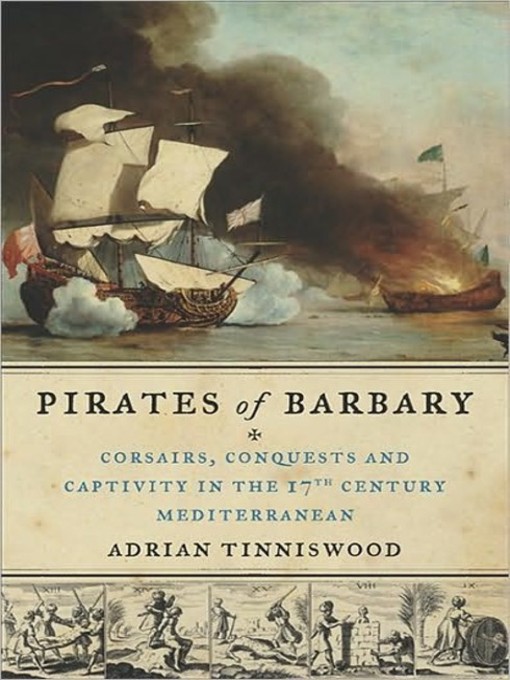
Pirates of Barbary
Corsairs, Conquests and Captivity in the Seventeenth-Century Mediterranean
فرمت کتاب
audiobook
تاریخ انتشار
2010
نویسنده
Clive Chaferناشر
Tantor Media, Inc.شابک
9781400189243
کتاب های مرتبط
- اطلاعات
- نقد و بررسی
- دیدگاه کاربران
نقد و بررسی

Tinniswood touches on pirating in the Horn of Africa today, but mostly he sticks to an account of the Barbary pirates of the Mediterranean in the seventeenth century. He offers personal tales of high adventure, quoted from slaves and sailors, captains and officials, gleaned from publications of the day. He also provides historical facts about international relations and the era's nation states. Clive Chafer's British voice has a conversational tone and pace. Sometimes he mimics foreign voices and high-toned British officials but not often because the book doesn't lend itself to dramatization. While Chafer provides a good narration, it's primarily the subject matter that holds the listener's attention. D.R.W. (c) AudioFile 2011, Portland, Maine

September 13, 2010
Forget the pirates of the Caribbean: their Old World brethren were an altogether more colorful and fearsome lot, according to this swashbuckling study. Historian Tinniswood (The Verneys: A True Story of Love, War, and Madness in Seventeenth-Century England) revisits the kleptocratic heyday of the Barbary states—Tripoli, Tunis, Algiers, bits of Morocco—which offered fortified harbors to pirates and in turn built their economies around the sale of stolen cargoes and captives. The buccaneers, who kidnapped whole villages as far north as Ireland and Iceland, were denounced as the scourge of Christendom. Yet most of the "Turkish" pirates Tinniswood highlights were British, Dutch, or Italian renegades who sometimes bought pardons and obtained naval commands from their native countries. The million Christians sold into bondage often converted to Islam and became pillars of the North African economy. The author makes this story an entertaining picaresque of crime, combat, and moral compromise; fierce sea battles and daring escapes alternate with corrupt hagglings as European governments vacillate between gunboat diplomacy and offering tribute for the release of their enslaved countrymen. Tinniswood gives us both a rollicking narrative and a rich brew of early modern maritime history. Illus., map.

























دیدگاه کاربران